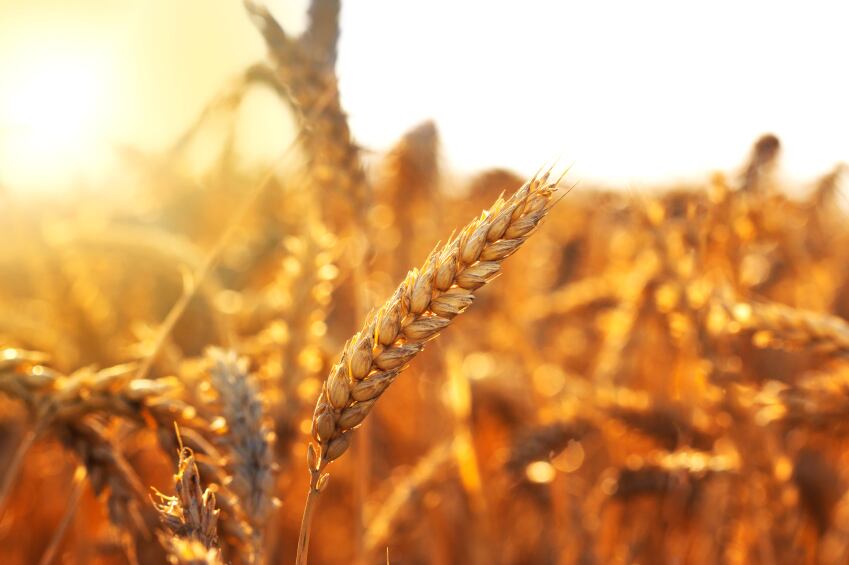Organic food and its health benefits have fallen under the most scrutiny. Current thinking suggests organic food is more nutritionally dense and is less exposed to pesticides when compared to foods produced by conventional farming methods.
As well as research that attributes organic foods to a lower risk of type II diabetes, hypertension and cardiovascular disease, a range of studies have also gone as far as establishing a link between organic food and the health of infants and mothers during pregnancy.
Conflicting evidence

While one study detailed the link between consumption of organic dairy products and a lower eczema risk amongst infants in the first 2 years of life, another study detailed the association between use of organically grown vegetables during pregnancy and reduced risk of pre-eclampsia.
“Possible explanations for an association between pre-eclampsia and use of organic vegetables could be that organic vegetables may change the exposure to pesticides, secondary plant metabolites and/or influence the composition of the gut microbiota,” the researchers noted.
Although some studies have highlighted the potency of organic foods there are the studies that have proved inconclusive, or that raise more questions than they answer.
A systematic review concluded that published literature lacked strong evidence to suggest organic foods were significantly more nutritious than conventional foods, although the researchers did conclude that consumption may reduce exposure to pesticide residues and antibiotic-resistant bacteria.
Even studies that claim organic foods are better for you are subject to intense examination by other scientists disputing the finding’s validity. One example is the study led by Dr Carlo Leifert, professor of ecological agriculture at Newcastle University. His results suggested that organic crops, on average, had higher concentrations of antioxidants, linked to better health than regular food, and lower levels of toxic metals and pesticides.
However, as reported in The Guardian, the work was accused of being ‘sexed up’ with the scientific community sceptical over the methodology and critical of the broad conclusions drawn in the study.
Some perspective, please
The findings on organic food’s nutritional value and health benefits are put into perspective when the reasons for its popularity are taken into consideration.
"If you look beyond health effects, there are plenty of other reasons to buy organic instead of conventional," said Dr Dena Bravata, senior author of a Stanford University study that suggested consumption of organic fruit and vegetables had no benefit over conventional food in terms of improving health.
“Consumers may choose to purchase organic foods for other reasons besides nutrition and food safety, such as concern for animal welfare, the environment, or preferences in taste," added lead researcher Crystal Smith-Spangler.
Krebs criticism

Organic food has been touted as a food made with lifestyle in mind rather than one which prioritises health. This was reinforced by a UK Food Standards Agency report in 2009 in which a study of 46 papers on the subject concluded there were no significant health benefits to be had from eating organic food.
During his chairmanship of the Food Standards Agency, John Krebs criticised the organic food movement, concluding that it was a "lifestyle choice." He went further in 2015, during the Oxford Farming Conference, when he suggested organic farming might do more damage to the environment due to increased land required and carbon released from the soil.
Understandably, proponents of the organic food industry responded strongly to these claims. Soil Association chief executive Helen Browning said she was “bemused” by Krebs’ hostility towards organic farming.
“A global meta-analysis has shown that organic farming stores significant amounts of carbon in the soil over time, and is a very effective way of combating climate change,” she said citing a study conducted at the University of California Berkeley.
“When the increasing use of non-renewable inputs is considered, non-organic farming is significantly less productive than organic, and the productivity of non-organic is falling because conventional farming is using more and more fertilizer inputs simply to keep yields level.”
Non-organic, nothing special?
In the debate as to whether there are benefits to buying organic produce; foods produced via conventional farming methods have been overshadowed.
The reality is non-organic food forms the staple of much of what is eaten and bought from the supermarket. Its primary advantage is the cost savings achieved as the farming and growing methods yield more food per acre. There is minimal loss due to insect damage and the shelf life is often longer.
Consumers also benefit from buying local with food produced close to home supporting small businesses. The food available is fresh and varied. Often, the meat and produce is raised organically but lacks costly organic certification. Produce grown for the local market may not be treated with high levels of pesticides and fungicides.
In addition, non-organic brands are reliably consistent in taste, texture and quality, so consumers know what to expect from their purchases and there may be less waste.
Food manufacturers’ role

Despite the ready availability of non-organic produce, more shoppers are buying into the trend of organic foods and drink consumption, convinced of its health benefits, or at the very least its stance on animal welfare, the environment, or perceived taste enhancement.
This leads on to how food manufacturers can tap into the rise of organic food trend and meet consumer’s needs. According to the Soil Association consumers are now spending an additional £1.4m (€1.85m) a week on organic food, increasing sales by 4% to £1.86bn (€2.4bn) last year.
However, the sector is still battling to enter the mainstream. Organic produce represents a tiny slice in terms of total food and drink spend in the UK, with a market share of just 1.3%.
A start may be found in the supermarkets themselves. Organic food has been perceived as a premium product and is likely to be more expensive. As a result, retailers are reluctant to devote as much shelf space to organic foods.
However this changed in 2014 as budget retailers Aldi and Lidl expanded their fresh food and organic ranges that targeted the demographic of middle income shoppers. Since then the big four, Tesco, Waitrose, Asda and Sainsbury’s have all followed suit with their own range of organic foods.
